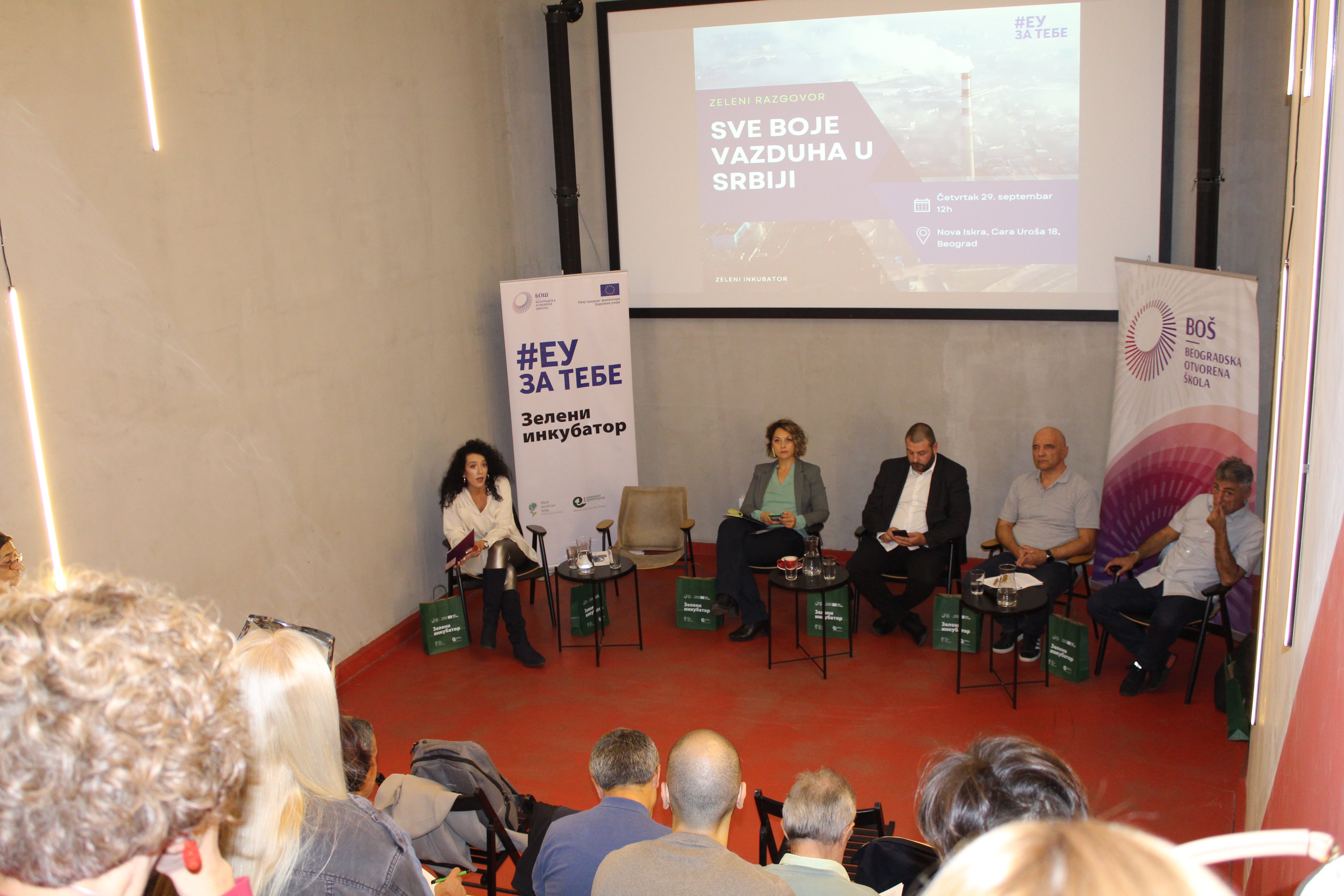What kind of air did we breathe during the year? What are the consequences of low air quality for our health? Do we need to change the Law on Air Protection? We're approaching the beginning of the heating season and it is a good time to talk about these issues. The air quality was the focus of the Green Talks: All the Colors of the Air in Serbia, organized by the Belgrade Open School (BOS), and Young Researchers of Serbia in cooperation with the National Environmental Association (NEA), which brought together representatives of the public, local and the civil sectors.
According to last year's data from the Environmental Protection Agency, more than 3 million citizens of Serbia breathed excessively polluted air during 2020. We still don't have this Agency's official report for 2021, but we do have official data, and we can conclude that we breathed excessively polluted air in 2021 as well, and we expect that the new heating season will bring us worrying pollution again.

Even before the beginning of the heating season, on the Eco application, citizens of many Serbian cities could see that air pollution exceeded the allowed limits and that the color of cities changed from green to red.
Prof. dr Dragana Jovanovic, presented the latest data on the impact of air quality on health, which shows that every fifth death from lung cancer is caused by air pollution. Furthermore, the data show that Serbia is the first country in Europe in terms of the cause of death from pollution, and the 10th in the world. A particularly vulnerable category is children, who as a result of long-term exposure to pollution have poor brain development. Dejan Lekic from the National Environmental Association says that excessive pollution from PM particles has been recorded in all 12 cities where the concentration of these particles is measured, while for 19 cities in Serbia, particulate pollution data does not exist at all.
The judiciary should have a key role in solving the problem with air pollution. It is also is necessary to underline the difference between lack of ability to take measures and refusal to take responsibility, said Mirko Popovic, program director of RERI. Regulations governing air pollution exist, but are flawed. The Law on Air Protection has a number of deficiencies, it is not fully implemented, it defines air quality categories in an inadequate way and transfers most of the responsibility to local governments, said Milenko Jovanovic (NEA).
Mirjana Jovanovic,from BOS, stated that civil society has an important role in solving this complicated problem, and because of that, the topic of air pollution is in focus now. We are now in a phase where we are talking about solutions to the problem, and not only about whether the problem exists. From recognizing the problem, to influencing the choice of appropriate solutions, to the fact that civil society supervises the implementation of public political – these are all key roles of civil society.
The experiences of local organizations from Gornji Milanovac, Kraljevo and Surdulica tell us that the fight against air pollution at the local level is a fight with limited resources, non-transparent data and often disinterested local government actors. Thanks to civic actions and bringing this topic in the focus of the public and decision-makers, citizens are becoming aware of the seriousness of the problem. Although the clear recommendations on how to deal with the air pollution do not exist in all parts of the country. Civil society has an important role in solving the problem of air pollution, but it cannot have the same level of responsibility as decision-makers. Although solving air pollution requires significant financial resources, citizens should be aware that they are already paying this price, either through the cost of the health system, lost lives or funds invested in far less priority projects. By actively demanding accountability from public authorities, citizens can influence the fact that limited resources are directed to actually solving the problem of air pollution.
The Project Green Incubator is implemented by the Belgrade Open School, Young Researchers of Serbia and Environment Engineering Group with the support of the European Union.
Author of the photo: Belgrade Open School
